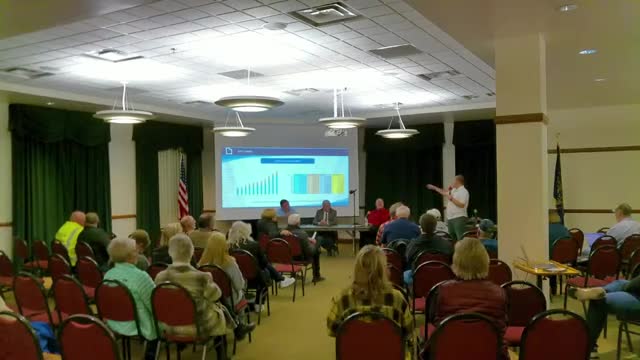Tax Shift Sparks Controversy Over Rising Homeowner Burden
November 09, 2024 | Iron County Commission, Iron County Boards and Commissions, Iron County, Utah
This article was created by AI summarizing key points discussed. AI makes mistakes, so for full details and context, please refer to the video of the full meeting. Please report any errors so we can fix them. Report an error »

In a recent government meeting, officials discussed significant shifts in property tax assessments and their implications for homeowners and centrally assessed properties in the state. The meeting highlighted a stark increase in home values, which surged from $2.4 billion in 2014 to $7.5 billion in 2023. In contrast, the value of utilities saw a modest rise from $384 million to $418 million over the same period.
The discussion revealed that residential properties now bear a heavier tax burden, with homeowners contributing 67% of total taxes in 2022, up from 54% in 2013. This shift has raised concerns among officials, who noted that centrally assessed properties paid $1.67 million less in taxes in 2023 compared to the previous year, effectively transferring the tax burden to homeowners.
A key point of contention was a five-year period during which the state of Utah froze property tax rates for centrally assessed properties, despite rising home values. This freeze, which ended two years ago, meant that while home values increased significantly, the tax rate remained unchanged, leading to higher tax bills for homeowners.
Officials emphasized the need for a reevaluation of tax policies to address the growing disparity in tax contributions and ensure a fair distribution of the tax burden among property owners. The meeting concluded with a call for further discussion on potential reforms to the property tax system.
The discussion revealed that residential properties now bear a heavier tax burden, with homeowners contributing 67% of total taxes in 2022, up from 54% in 2013. This shift has raised concerns among officials, who noted that centrally assessed properties paid $1.67 million less in taxes in 2023 compared to the previous year, effectively transferring the tax burden to homeowners.
A key point of contention was a five-year period during which the state of Utah froze property tax rates for centrally assessed properties, despite rising home values. This freeze, which ended two years ago, meant that while home values increased significantly, the tax rate remained unchanged, leading to higher tax bills for homeowners.
Officials emphasized the need for a reevaluation of tax policies to address the growing disparity in tax contributions and ensure a fair distribution of the tax burden among property owners. The meeting concluded with a call for further discussion on potential reforms to the property tax system.
View the Full Meeting & All Its Details
This article offers just a summary. Unlock complete video, transcripts, and insights as a Founder Member.
✓
Watch full, unedited meeting videos
✓
Search every word spoken in unlimited transcripts
✓
AI summaries & real-time alerts (all government levels)
✓
Permanent access to expanding government content
30-day money-back guarantee


